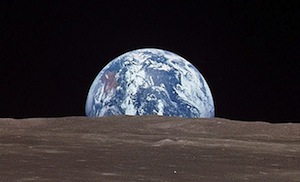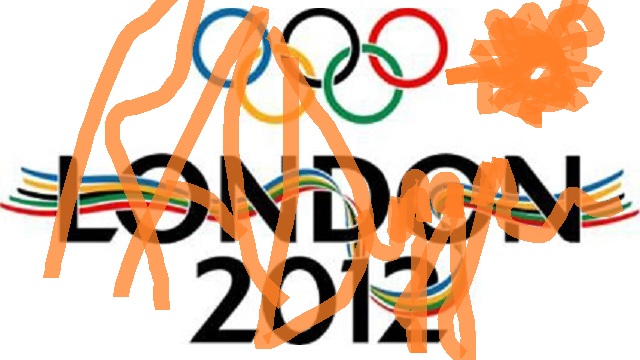An Evolving Perspective

With respect to the cosmos, mankind has just been born. Hypothetically, if our 14 billion-year-old universe were scaled down to just 10 years (for the sake of comparison), dinosaurs would have been extinct 17 days ago, our earliest relative Lucy would have been playing around on the Savannah 19 hours ago, modern humans would have first appeared 80 minutes ago, the birth of Jesus just 46 seconds ago, and the declaration of independence would have been signed a mere 5 seconds ago! Think about that for a moment: what does 5 seconds mean to you in the scope of 10 years? In the scheme of things it’s totally insignificant, yet throughout this glorious history of ours we time and time again think we have it all figured out. From the notion that the earth is flat, to the belief that we are the center of the solar system, we have this anthropomorphic tendency to think we know more than we actually do. In 1900, the esteemed scientist Lord Kelvin proclaimed “there is nothing new to be discovered in physics.” This sentiment was echoed by several other experts of his time, yet little did they know, science was on the brink of discovering both the theory of special relativity and quantum mechanics – phenomena that totally shattered our preconceived notions of the universe.
In many ways, it is a corollary of mankind: we are conscious beings with an unyielding curiosity, whose view of the world is ironically shrinking; every time we find more, we discover that we know less. Granted we’re doing pretty well at the moment. The Standard Model of particle physics just got a huge pat on the shoulder with the recent Higgs discovery, we’re about to put a rover on Mars, and we’re connecting ideas in many disparate fields in unique and insightful ways. But despite these achievements, we must come to grips with how primitive our thinking still is – and more importantly, use what we know as fact to our advantage.
Since coming to Singularity University I’ve learned a lot about what we do know. Things related to technology, biology, engineering capabilities and the like. But with all of these fascinating discoveries, two main ideas have emerged that dominate my thinking at the moment. The first is that all of this rapid acceleration Kurzweil outlined in The Singularity is Near is unequivocally taking place. Speculating like he did about the distant future is merely an exercise in imagination, but we’ve had VCs, CEOs, CTOs, forecasters and entrepreneurs all visit us with the same confidence that the coming decades are going to be an extraordinarily fun ride. I outlined some of the things we can expect in a previous post, but if history tells us anything, it is that we should expect the unexpected. The main consequence of living on the second half of the chessboard is that we’re going to have to learn more and learn faster if we want to keep up with the accelerating world around us.
The second theme underlies all of this increasing complexity, and it pertains to the blatant naivete about how interconnected the planet truly is. We talk a lot about how technology is accelerating, disruptive, and ubiquitous – yet we neglect how governmental systems are stagnating mankind’s potential; instead of embracing global cooperation we accept global competition. This needs to change. Singularity University is one of the odd institutions that thrives off of this interconnectedness, and being in this environment has furthered my belief that the boundaries we’ve built between countries and cultures are delusional and counter-productive. The astronaut Edgar Mitchell walked on the moon in 1971’s Apollo 14 mission and is one of the few individuals to vocalize the transformative perspective of observing the earth from outside its orbit. He described a feeling of what he called “the ecstasy of unity” and a “oneness” between all mankind and the universe. Mitchell got a PhD from M.I.T. and was a celebrated fighter pilot in the U.S. Navy, but since that experience he has been spending his time studying consciousness and philosophizing about the universe. His words echoe the spirituality put forth by Carl Sagan, where despite our differences, at the end of the day, we are all just made of star-stuff.

On a more pragmatic level, this oneness of all man and matter has some valuable insight to offer us about our world today. We get a glimpse of this unity on the Internet, where global connection allows us to transcend our environment and see the world from an infinite range of perspectives. Not only for self-educating means is this powerful, but the collaborative capabilities are extraordinary. Experiencing these synergistic effects first hand these past weeks at Singularity University has led me to believe that cosmopolitan dynamics will be an important part of our future. Bringing people of various backgrounds and experiences together to converse and create has enormous potential for solving the world’s grand challenges. Many scholars have recorded the advantages for innovation when diversity is embraced, but moving beyond experiments in the lab, there is dire need for more unity on planet earth. Issues like global warming and 21st century crime are not going to find solutions on a country-to-country basis. These are threats that need to be addressed by the world as a united force. Some have started calling for the cultivation of a “global brain” and others refer to it as a “group mind”, but whatever the analogy of choice may turn out to be, it’s past time that we start using our interconnectedness for evolutionary good
I believe as things really start to heat up in the coming years of computing, biotech, energy and elsewhere, it will be even more crucial that we address our issues as a collective whole. We already have the tools and resources to dramatically improve our governing systems, and theorists have postulated that the next phase of civilization – whatever it winds up manifesting itself as – should be indistinguishable from nature. While I am optimistic this evolution is forthcoming, it’s sometimes tough to believe when all signs in Washington and around the world point to politics as usual. We see glimmers of hope from events like last year’s Arab Spring, but time is of the essence. It is up to us thinkers and do-ers to help the world wake up and see that when cohesively structured, the sum of human ingenuity can be greater than its parts.
Videos like this one sure do help the cause…
View from the ISS at Night from Knate Myers on Vimeo.





